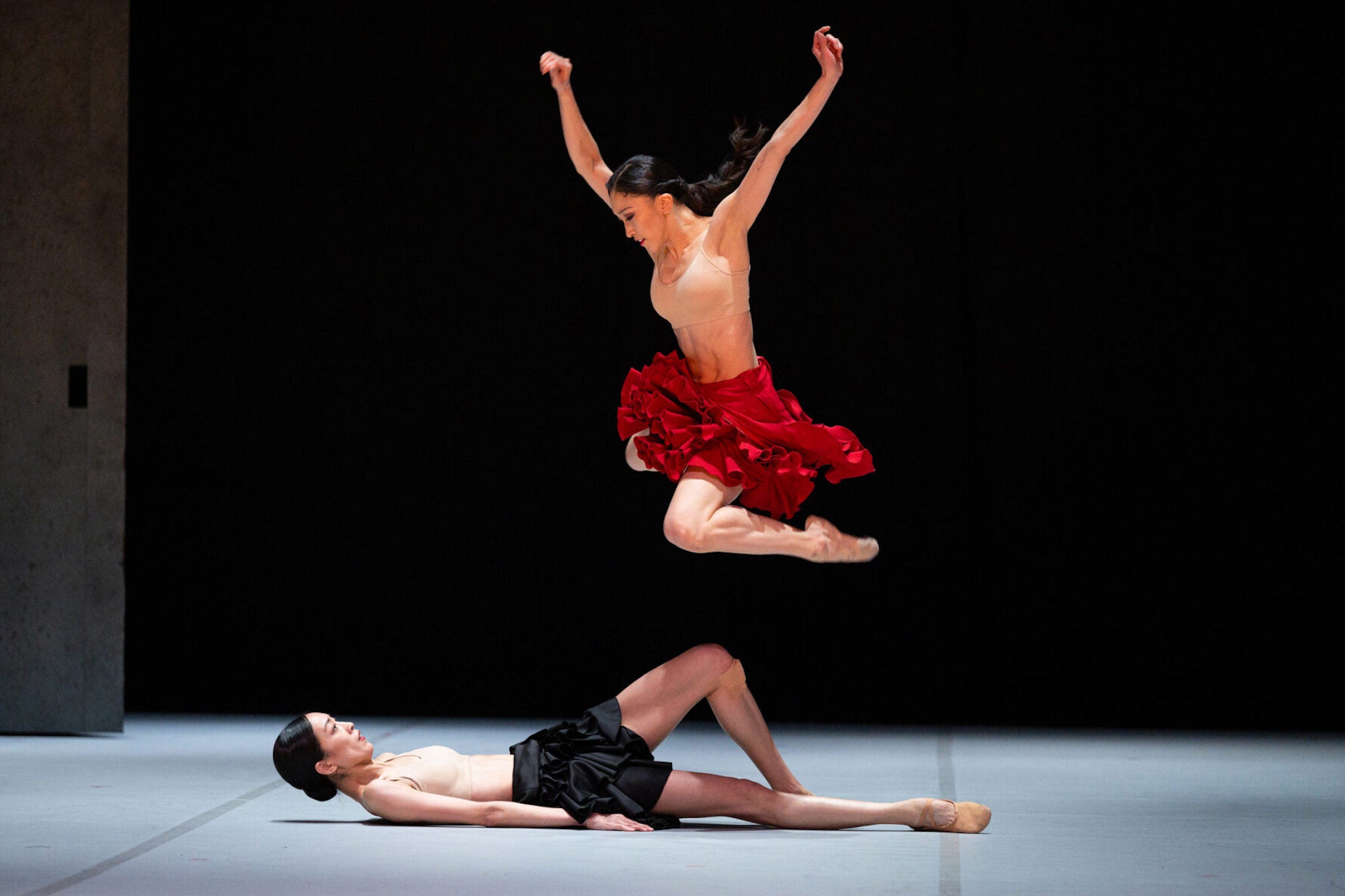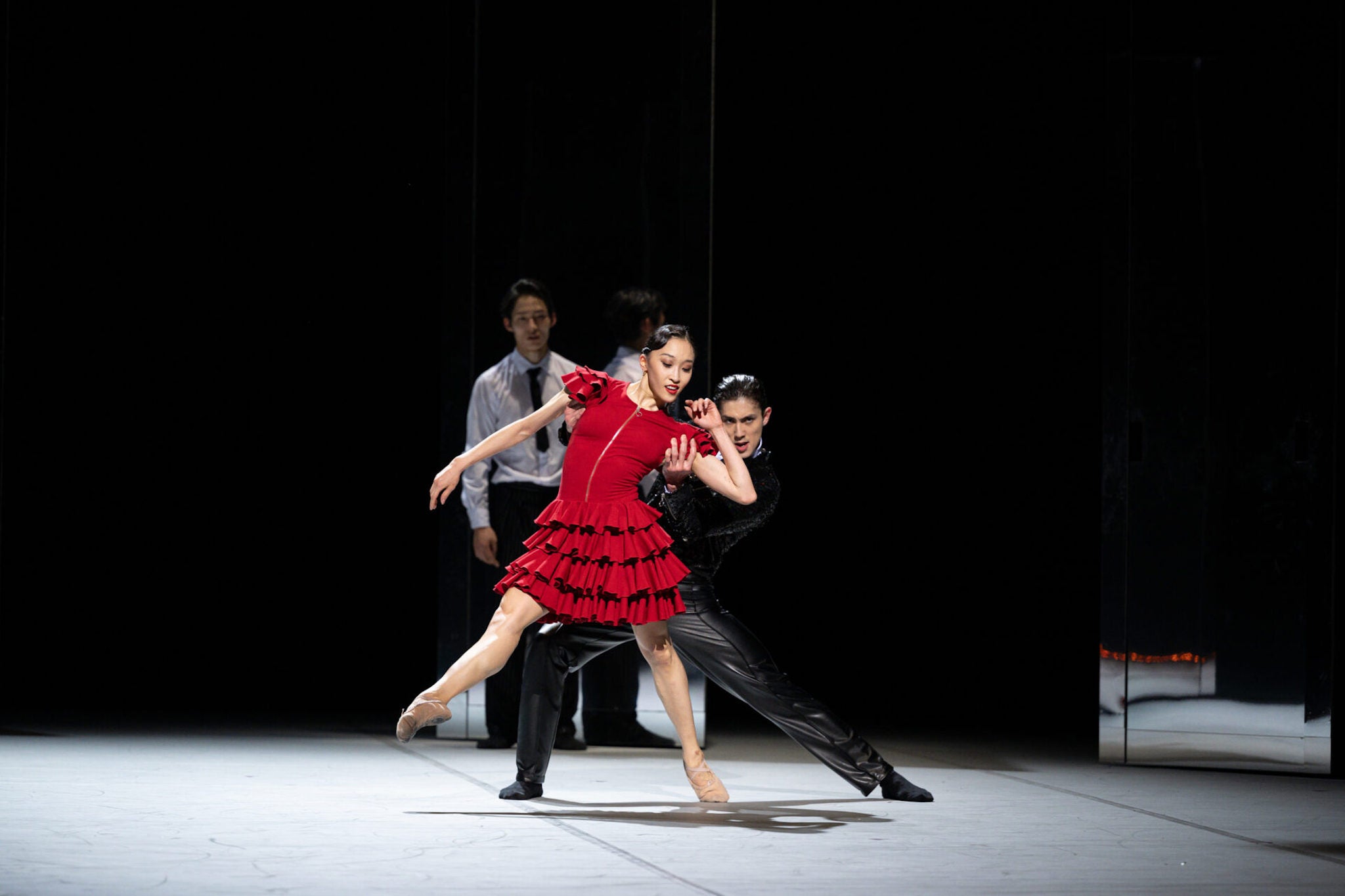Carmen review: Unusually aware of its own stark violence, this ballet has a welcome edge
Minju Kang and Rentaro Nakaaki skip and swoop their way through this classic red-frilled tale of obsession

English National Ballet’s new Carmen is stark and sleek, with some tough questions alongside the red-frilled dress and crimson lipstick. Choreographer Johan Inger can be heavy-handed about fate and destiny, but he’s always aware that people are making choices.
ENB’s production is the UK premiere of Inger’s ballet, created for Madrid’s Compañía Nacional de Danza in 2015. It’s a sign of how ENB is positioning itself under new director Aaron S Watkin: a balance of classical ballet, with a bigger dash of European contemporary dance. The company dive into Inger’s style with assurance.
There are plenty of Carmen ballets: Bizet’s heroine, and his music, are solid box office. But Inger’s stripped-back staging is unusually aware of the violence of the story. His Don José is very obviously controlling as well as smitten: it’s not just that Carmen is irresistible, but that José feels he has a right to possess her. In an art form that can be unthinking about its use of violent sexual imagery, Inger’s approach has a welcome edge.

He underlines it with clunkier narrative devices: black-masked shadows intervene in the action, while the story is watched by a boy, absorbing or reacting against its lessons. But the drama between Minju Kang’s Carmen and Rentaro Nakaaki’s José makes the point more clearly.
Kang is a vivid Carmen. Standing with her weight shifted on one hip, she offers both glamour and casual defiance: her independence is what appeals to José, and also what threatens him. Nakaaki can be giddily smitten, but jealousy bubbles near the surface. Their duets are full of skips sideways, swooping lifts that turn in unexpected directions. And Inger reminds us that the violence ripples wider, in confrontations with James Streeter’s assured Zuniga, or between Carmen and the cigarette factory workers.
The designs put the story more or less in the present day. Female characters wear short ruffled skirts, designer David Delfin’s nod to traditional Spanish dresses, but the men are in modern dress. José’s uniform has gleaming pinstripes, echoed in the ultrafine, glittering bars of Curt Allen Wilmer and Leticia Gañán Calvo’s prison set. The dancers shift smoothly between more naturalistic crowd scenes and Inger’s stylised groupings, bringing bite to both.
Until 6 April at Sadler’s Wells



Join our commenting forum
Join thought-provoking conversations, follow other Independent readers and see their replies
Comments